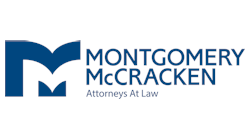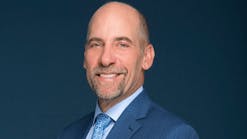
This article originally appeared in the April 2020 issue of Security Business magazine. When sharing, don’t forget to mention @SecBusinessMag!
By now, everyone has heard of – or, worse, experienced – the impact of the coronavirus (also known as COVID-19). It is a global problem that is clearly impacting our daily lives. It is also having a profound impact on the safety of the workplace and legal considerations for employers.
We are all in unchartered territory – and that can lead to great uncertainty as to the legal rights and obligations of employers. Knowing what to do and what not to do can be tricky.
Here are some practical and legal tips to help manage this crisis, promote a safe and healthy workplace, and protect your company:
What Questions Can Employers Ask?
Employers are permitted to ask employees if they are experiencing coronavirus like symptoms; however, employers should maintain the confidentiality of any individual confirmed with COVID-19, just as they would with an employee who has contracted any other virus or illness.
Employers can also inquire about the travel of employees and mandate that employees who recently traveled to certain locations remain home for several days after their travel to be sure they are clear of symptoms before returning to work.
As always, businesses should not make any or inquiries or determinations of risk based on an employee’s national origin, race or any other protected category.
Can Employers Test for Coronavirus?
Federal law – particularly the Americans with Disabilities Act (ADA) – restricts an employer’s ability to make disability-related inquiries or require medical examinations. Consequently, under present law, employers cannot mandate testing for coronavirus, except in limited circumstances. Also, the degree to which this can be done depends on the status of the employee.
For example, the ADA prohibits all disability-related inquiries and medical examinations for prospective employees, even if they are related to the job. This would prohibit testing for coronavirus at the job application stage; however, after an applicant is given a conditional job offer, but before s/he starts work, an employer may make disability-related inquiries and conduct medical examinations, regardless of whether they are related to the job, as long as it does so for all entering employees in the same job category. Arguably, this would allow for inquiries about the coronavirus and perhaps even testing.
After employment begins, an employer may make disability-related inquiries and require medical examinations only if they are job-related and consistent with business necessity. If it is determined that an employee represents a “direct threat” – i.e., a significant risk of substantial harm to the health or safety of the individual or others in the workplace, which cannot be eliminated by reasonable accommodation (such as a change in job responsibilities or location) – then action may be taken to segregate the employee or direct the employee to stay home.
Indeed, mandating telecommuting may be deemed a reasonable accommodation under the law.
When is it Suitable for Recovered Employees to Return?
If one or more of your employees contracts the coronavirus and recovers, how do you know when it is safe for them to return? Ultimately, that is a medical question; however, from a legal perspective, an employer may require certification of the illness by the employee’s healthcare provider, as well as certification that the employee is medically able to return to work when that time comes.
As before, any employees who continue to show symptoms upon return must be separated from other employees or sent home immediately.
Other Support that Employers can Provide
Aside from the usual reminders about washing hands, providing adequate supplies, social distancing, etc., employers can take various other steps to protect the workplace, including:
- Employers can place posters at the entrance and around the workplace encouraging employees to stay home if they are sick or may be sick and to maintain proper hygiene.
- Employers can require employees to wear appropriate personal protective equipment (PPE) – such as gloves – to reduce the transmission of the virus, provided that any employee who needs an accommodation for such PPE receives the accommodation, absent undue hardship.
- Employers cannot require employees to take a COVID-19 vaccine (if one becomes available), but they can strongly encourage the use of any available vaccines.
- Communicate the office leave policies, policies for getting paid, transportation issues, and day care concerns.
- Employers can be flexible about work-from-home policies for any employees who are sick or who are staying home to care for a sick family member.
- Communicate regularly with staff concerning important updates about business operations, virus prevention and implementation of their outbreak response plan.
- Review employment policies to make sure they are consistent with current public health recommendations.
- Consider limiting access to customers and the general public or ensuring that they can only enter certain areas of the workplace.
Like the coronavirus, the law is evolving too. As your circumstances change, it is critical that you seek counsel on these important employment issues so that you can ensure your company is following the law and adequately protecting your company and its employees.
Timothy J. Pastore, Esq., is a Partner in the New York office of Montgomery McCracken Walker & Rhoads LLP (www.mmwr.com), where he is Vice-Chair of the Litigation Department. Before entering private practice, Mr. Pastore was an officer and Judge Advocate General (JAG) in the U.S. Air Force and a Special Assistant U.S. Attorney with the U.S. Department of Justice. Reach him at (212) 551-7707 or by e-mail at [email protected].
Check out GoodHire's Guide To Mandatory COVID Vaccines In The Workplace

Timothy J. Pastore, Esq.
Timothy J. Pastore Esq., is a Partner in the New York office of Montgomery McCracken Walker & Rhoads LLP (www.mmwr.com), where he is Vice-Chair of the Litigation Department. Before entering private practice, he was an officer and Judge Advocate General (JAG) in the U.S. Air Force and Attorney with the DOJ. [email protected] • (212) 551-7707
Meet Timothy J. Pastore
Timothy J. Pastore, Esq., is the newest columnist to join the Security Business magazine family. He is a Partner in the New York office of Montgomery McCracken Walker & Rhoads LLP (www.mmwr.com), where he is Vice-Chair of the Litigation Department.
Before entering private practice, Mr. Pastore was an officer and Judge Advocate General (JAG) in the U.S. Air Force and a Special Assistant U.S. Attorney with the U.S. Department of Justice. As a JAG, in particular, Mr. Pastore was legal counsel to the Air Force Security Forces and Air Force Office of Special Investigations.
Mr. Pastore has represented some of the largest companies in the security industry, including Protection One, Comcast, Charter, Cox, Altice, Mediacom, IASG, CMS and others. He regularly provides counsel on risk management, contracting, operations, licensing, sales practices, etc. Mr. Pastore also has served as lead counsel in courts throughout the country in dozens of litigation matters involving the security industry.
Among other examples, Mr. Pastore led the successful defense at trial of cable giant Comcast in a home invasion case in Seattle, Washington. The case received significant press attention and was heralded by CVN as a top-ten defense verdict.
Mr. Pastore is a graduate of Bucknell University and Boston College Law School.
Reach him at (212) 551-7707 or by e-mail at [email protected].


